
|
|
|
Lecturers
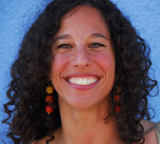
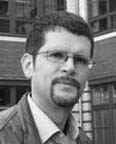

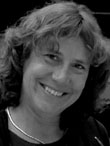

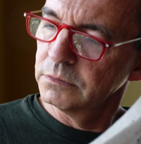
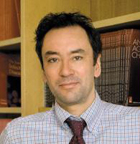



Lecturers' biographical notes
Heide Castañeda is Associate Professor and Graduate Director in the Department of Anthropology at the University of South Florida. She received a PhD in Anthropology from the University of Arizona (2007), an MPH from the University of Texas (2002), and an MA from the University of Texas at San Antonio (2000). She was a Fulbright guest professor at the Freie Universität Berlin’s Institute of Social and Cultural Anthropology in 2011-2012. Her research activities focus on health inequalities related to unauthorized migration in Germany and the United States, especially the analysis of legal status and constructs of citizenship. Her work has appeared in the journals Social Science & Medicine, Medical Anthropology Quarterly, Journal of Health Care for the Poor and Underserved, Medical Anthropology, Citizenship Studies, Health Promotion Practice, American Journal of Health Behavior, Human Organization, Anthropological Journal of European Cultures, and Annals of Anthropological Practice, among others. She has contributed to the books Migration and Health Research Methodologies (University of California Press, forthcoming), The Deportation Regime: Sovereignty, Space, and the Freedom of Movement (Duke, 2010), Gender and Illegal Migration in Global and Historical Perspective (Amsterdam U, 2008) and Transnational Migration to Israel in Global Comparative Context (Lexington Books, 2007).
Her applied work is situated at the intersection of health and immigration policy. In this capacity, she has worked with numerous clinics and migrant advocacy organizations in Germany and the United States. One current project explores experiences of mixed-status families in the medically underserved Lower Rio Grande Valley of Texas, a border community with high levels of circular migration and binational kinship ties. While the recent US health care reform (Affordable Care Act) extends coverage to millions of uninsured people, changes accompanying the reform will have multiple adverse impacts on predominantly Mexican-origin mixed-status families. The research engages with contemporary work on the everyday practices of citizenship inspection and the role of the state in shaping differences at the household level through juridical categories in relation to public institutions. A second ongoing project explores Roma migrants from Central and Eastern Europe fleeing extensive poverty and marginalization to seek new opportunities in Germany. While most are European Union (EU) citizens with guaranteed freedom of movement between member states, they remain socially and economically excluded in Germany, where they lack access to formal employment, live in precarious circumstances, and have limited or no access to healthcare. Their situation resembles that of unauthorized migrants and highlights discourses on displacement, legitimacy and the “(un)deserving subject.” This research examines the inconsistencies associated with distinctions between “voluntary” and “forced” migration with resulting consequences for access to quality medical care.
Hansjörg Dilger is Professor of Social and Cultural Anthropology at Freie Universität Berlin. From 2007-13, he was a Junior Professor for Religious Diversity in Transnational Contexts at FU Berlin and from 2005-07 Assistant Professor for African Health and Society at the University of Florida, Gainesville. His research and teaching interests in the field of medical anthropology include HIV/AIDS and social relations; religion and medicine; mobility, migration and health; the anthropology of transnational health interventions; global flows of medical knowledge and healing landscapes; and professionalization processes. Regionally, he focuses on eastern and southern Africa as well as on migratory contexts in Germany.
Between 1995 and 2006, Dilger conducted fieldwork on HIV/AIDS and social relations in rural and urban Tanzania, focusing initially on young people’s discourse on AIDS, morality and modernity. He also studied the experiences and life-worlds of people living with HIV/AIDS and their social and family networks in the context of rural-urban migration. Since 2008, he has done research on Christian and Muslim schooling in Dar es Salaam and the social, political and moral presence of religion in urban Tanzania in the wake of neoliberal restructuring. Dilger is co-editor of several edited volumes and special issues, including Medicine, Mobility, and Power in Global Africa: Transnational Health and Healing (2012, with A. Kane and S. Langwick); Morality, Hope and Grief: Anthropologies of Aids in Africa (2010, with U. Luig); and Global AIDS Medicines in East African Health Institutions (Special Issue in Medical Anthropology 2011, with A. Hardon).
Dilger is head of the Research Area Medical Anthropology at Freie Univcersität Berlin. He is also a board member of the International Research Network “Religion, AIDS and Social Transformation in Africa” (RASTA) and research partner of the Max Planck Institute for the Study of Religious and Ethnic Diversity, Göttingen, Research Focus “Medical Diversity.” Between 2004 and 2010, he was the chair of the Working Group Medical Anthropology within the German Anthropological Association (DGV e.V.). His more applied work includes consultancies for the German Society for Technical Cooperation (GTZ, now GIZ) and collaborations with health institutions regarding the provision of medical care for patients with a migratory background in Berlin.
Sylvie Fainzang is a French medical anthropologist. She obtained a PHD in 1984, and a Habilitation to Direct Research at the EHESS in Paris in 1997. She is a Director of Research at INSERM (French National Institute of Health and Medical Research), member of Cermes3, scientific leader of the MAAH network ("Medical Anthropology At Home") and editor-in-chief of the on-line Journal Anthropologie & Santé.
Recently, her main areas of interest have been: social and cultural practices in response to illness, social uses of pharmaceuticals, information and lying in the doctor-patient relationship, patient autonomy and self-medication. After conducting her first research in West Africa on the cognitive and practical management of illness, she studied interpretative models of illness in France. In parallel, she studied the issue of reproduction and sexuality amongst immigrant African families in polygamous marriages. She also conducted a study on a French group of former alcoholics, their representations of alcoholism and the mechanisms of its management. She then examined the relationship to drugs, medical prescriptions and doctors among people from various religious cultural origins (Protestant, Catholic, Jewish and Muslim), in order to show to what extent this relationship is socially constructed. Her research then focused on the issue of patient information and the role played by dissimulation and lying in the information exchanged between doctors and patients. Recently, she studied the issue of patient autonomy in the context of self-medication.
Her current research focuses on lay management of risks associated with pharmaceutical consumption, and in particular the strategies actors develop to control these risks. She is also looking more closely at the social stakes of the process of "self-medicalization". A list of her main publications can be found at: http://www.cermes3.cnrs.fr/spip.php?article842 or http://sylvie.fainzang.pagesperso-orange.fr.
Regarding her experience with applied/engaged work, her research in polygamous African families stemmed from the awareness of the problematic situation of women in this setting. Her work on lying between doctors and patients resulted from the wish to study patient information in the French context where it seemed to be more a profession of faith than a social reality. Likewise, her interest in the issue of autonomy resulted from the conviction that the shared discourse on patient autonomy and empowerment deserved to be critically examined. Yet, while her activities are marked by a form of engagement since one of her final purposes is to contribute to social and health improvement (as demonstrated by her involvement in various committees of health institutes), her posture as a researcher has deliberately been non-militant, so as not to prevent her from understanding social realities that an activist approach from the outset might overshadow.
Anita Hardon has been trained as a medical biologist and medical anthropologist (PhD). Her research career has taken shape around multi-sited anthropological studies of global health technologies. Over the course of these research programs, she has provided intensive guidance to young researchers (many from Africa and Asia), engaging them in the joint writing of books and special issues of journals. At present she is Scientific Director, Amsterdam Institute for Social Science Research, and Professor in Anthropology of Care and Health. She co-directs the Research Priority Area Global Health of the University of Amsterdam. Anita Hardon is co-author of the Social Lives of Medicines (2002). She publishes regularly in a wide diversity of journals, including Social Science and Medicine, Medical Anthropology and Culture Health and Sexuality. Recently she edited a Special issue on Secrecy as embodied practice (2012). She is currently conducting a study on the chemical lives of young people (ChemicalYouth), which was awarded an ERC advanced grant.
Ian Harper is head of social anthropology at the University of Edinburgh and a Wellcome Trust Senior Investigator. As a trained medical practitioner he worked in hospital medicine and general practice in the UK, before managing a tuberculosis control project in Nepal for three and a half years, and working for two years with NGOs throughout India in supporting community health programmes. His experiences of practicing medicine and public health in such diverse cultural and political situations led him to study medical anthropology. From August 1998 to March 2000 he researched into the social relations around, and the effects of, a series of public health programmes in Palpa district, Nepal. Briefly researching into the privatisation of technical training in the health sector in Nepal, between 2007-9 he researched as part of a multidisciplinary team on a DfID / ESRC funded research project "tracing pharmaceuticals in South Asia". Between August and December 2008, at the invitation of the Director, he worked in the Nepal National Tuberculosis Programme (NTP) assisting with the implementation of Global Fund funded programmes. He was then a CI on a grant from Phase 2 of the ESRC/DfID Joint Programme of Research on international development issues, entitled "Biomedical and Health Experimentation in South Asia: Critical Perspectives on Collaboration, Governance and Competition" which started in September 2010. Currently he is the recipient of a Wellcome Trust Senior Investigator Grant for the project: "Understanding TB Control: Technologies, Ethics and Programmes". He served on the ASA committee as the ethics officer (2005-7) and was a co-founder of Anthropology Matters, the ASA's national web-based postgraduate network. He is an associate editor of the International Journal of Tuberculosis and Lung Disease.
Lenore Manderson is Professor of Medical Anthropology in the School of Psychology and Psychiatry, Faculty of Medicine, Nursing and Health Sciences, and the School of Political and Social Inquiry, Faculty of Arts, at Monash University, Australia. Prior to joining Monash, she was Professor of Tropical Health (University of Queensland, 1988-1998), then Professor of Women’s Health (University of Melbourne, 1999-2005). She is an Honorary Professor at University of the Witwatersrand, South Africa, and Khon Kaen University, Thailand. She was awarded an inaugural Australian Research Council Federation Fellowship in 2001, and took this up at Melbourne and Monash universities from 2002-2007. She is a Fellow of the Academy of Social Sciences of Australia and the World Academy of Art and Science.
She is Australia’s most senior medical anthropologist, known internationally for her work in anthropology, social history and public health. She has played a lead role in training and research in inequality, social exclusion and marginality, the social determinants of infectious and chronic disease, gender and sexuality, immigration, ethnicity and inequality, in Australia, Southeast and East Asia (including Malaysia, China, Thailand, the Philippines and Japan), South Africa and Ghana, and most recently in the Solomon Islands. Her work with Indigenous and immigrants Australians is primarily applied; this includes the development of guidelines for practice to enhance access to services and to provide cultural appropriate services. She is the author, editor or co-author of almost 540 books, articles, book chapters and reports, including Chronic Conditions, Fluid States: Chronicity and the Anthropology of Illness (2010, ed. with Carolyn Smith-Morris), Surface Tensions: Surgery, Bodily Boundaries and the Social Self (2011), Technologies of Sexuality, Identity and Sexual Health (ed., 2012)and Reframing Disability and Quality of Life: A Global Perspective (ed. with Narelle Warren, 2013). She is Editor of the international journal Medical Anthropology (2010-present).
She has trained to graduation over 120 higher degree students and mentored dozens of other trainees, research interns and colleagues in Australia and overseas; akcnowledging this, she was awarded the American Anthropological Association, Medical Anthropology Students’ Association Mentor Award in 2007. She was President of the International Association for the Study of Sexuality, Culture and Society (IASSCS 2001-2003), and is presently a member of the steering committee for a project of the Academy of Science of Australia on population, equity, climate change and sustainability, and a member of the Scientific and Technical Advisory Committee of WHO/TDR (Special Programme for Research and Training in Tropical Diseases).
Her current research continues to focus on the intersections of chronic illness, disability, gender, migration and social exclusion. She is presently working on issues around public and private, disclosure and exposure, in health and other social contexts. At the same time, she is increasingly interested in how understandings of “treatment as prevention” inform health care and medical decision making across conditions, and in how scientists, clinicians and publics interact to frame and manage persistent and unresponsive health problems.
David Napier is Professor of Medical Anthropology at University College London, Director of the University’s Centre for Applied Global Citizenship, and Director of its new Science, Medicine, and Society Network. Prior to coming to UCL in 2004, Napier was a professor and/or fellow of Harvard University, New York University, Johns Hopkins University, and several colleges (including All Souls College and Harris Green Oxford).
Napier’s special interests in applied research include primary health-care delivery, human wellbeing, caring for ethnically diverse populations, migration and vulnerability, homelessness, new and emerging technologies, immunology, and creativity in scientific practice. He has published on law and anthropology and intellectual property and biodiversity, as well as being the author of six scholarly books and numerous book chapters. His new book, Making Things Better (Oxford University Press 2013), explores notions of property, local value, and exchange across cultures. He regularly writes for the press (e.g., Le Monde) and his work and writing have been featured in The New York Times and The Guardian, among others. For his activities with more than 100 charities and NGOs, the UK government and research councils awarded him the first Beacon Fellowship in Public Engagement. He is the recipient of various awards, including the Burma Coalition’s Human Rights Award.
Professor Napier is currently involved in a number of applied research projects examining creativity in scientific practice, the application of new technologies to health-care delivery, and the role of culture in health (including a forthcoming Lancet Commission Report on this subject). He is an inventor of medical devices and, as time permits, a consultant on vulnerable populations in the aftermath of natural and human disasters, having worked for, among others, Merlin UK, CRISIS, The United Nations, and the International Organization for Migration. David Napier is also an accomplished artist and has produced a number of short-films on homelessness and vulnerability.
Vinh-Kim Nguyen is an HIV physician an medical anthropologist. He practices at the Clinique médicale l’Actuel and in the Emergency Department at the Jewish General Hospital in Montréal (Canada). He teaches at the Department of Social and Preventive Medicine at the University of Montreal, where he is Professor, and recently established a Chair in Anthropology and Global Health at the College of Global Studies in Paris, and is a Researcher with the Amsterdam Institute for Social Science Research. As both a practitioner and researcher, he is concerned with the relationship between science, politics and practice in global health. Since 1994 he has worked extensively with community organisations responding to the HIV epidemic in West Africa as a trainer and physician. This work informed his anthropological work on the global response to HIV with a concern for the forms of triage and sovereignty they embody. He continues to follow the evolving scientific and political response to HIV in his current work which focuses on molecular epidemiology, global health and social theory. He is the author of The Republic of Therapy: Triage and Sovereignty in West Africa's Time of AIDS; coauthor, with Margaret Lock, of An Anthropology of Biomedicineand also the co-editor, with Jennifer Klot, of The Fourth Wave: Violence, Gender, Culture, and HIV in the 21st Century, as well as numerous articles in biomedical and anthropological journals.
Peter Redfield is Associate Professor in the Department of Anthropology at the University of North Carolina at Chapel Hill, a public research university in the United States with a relatively large health division. His areas of interest include science studies and the history of technology; humanitarianism and human rights; ethics, nongovernmental organizations and transnational expertise. He has conducted research in several sites in Europe, as well as French Guiana and Uganda. Recent publications include an extended study of the organization Médecins Sans Frontières (Life in Crisis: The Ethical Journey of Doctors Without Borders, U California Press 2013) and a coedited volume on humanitarianism (Forces of Compassion: Humanitarianism between Ethics and Politics, SAR Press, 2011). He is currently pursuing topics of humanitarian design and forms of mobile infrastructure related to medicine and health, broadly conceived. Examples include efforts to create quick fixes and bridge gaps in basic services and support systems, from nonprofit pharmaceuticals to commercial water filtration. His more engaged work likewise focuses on the humanitarian end of the aid world, where he has served as an informal consultant and volunteer.
Miriam Ticktin is Associate Professor of Anthropology at the New School for Social Research and Eugene Lang College (in New York City). She works at the intersections of the anthropology of medicine and science, law, and transnational and postcolonial feminist theory. Her research has focused in the broadest sense on what it means to make political claims in the name of a universal humanity: she has been interested in what these claims tell us about universalisms and difference, about who can be a political subject, on what basis people are included and excluded from communities, and how inequalities get instituted or perpetuated in this process. She has worked with undocumented immigrants as both an advocate and activist, engaging with local movements and migrant networks that span France and North Africa. Her newest project looks at emerging political and scientific technologies mobilized in the name of suffering -- expanding humanitarianism to ecological and planetary levels -- and how these help to redraw the boundaries between humans and non-humans, and new forms of political inclusion and exclusion. She is the author of Casualties of Care: Immigration and the Politics of Humanitarianism in France, University of California Press, 2011 (co-winner of the 2012 Douglass Prize in Europeanist Anthropology); and In the Name of Humanity: the Government of Threat and Care (co-edited with Ilana Feldman), Duke University Press, 2010, along with other articles and book chapters. She is also co-editor of the journal Humanity: An International Journal of Human Rights, Humanitarianism and Development.
| Online user: 1 | RSS Feed |

|
